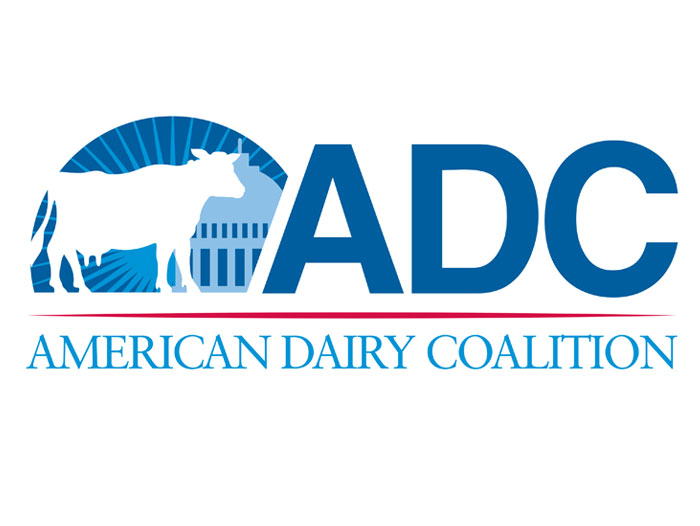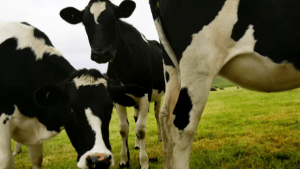
American Dairy Coalition pleased to see ‘higher of’ for ‘regular’ Class I, but questions ESL ‘adjuster,’ and higher processor ‘make allowances’
GREEN BAY, Wis. – USDA issued its draft decision on Federal Milk Marketing Order (FMMO) changes, which will be the Recommended Decision when published in the Federal Register in early July. At that point, industry feedback will be collected during a 60-day public comment period.
“We appreciate the work of the Department through the long hearing process sorting through 21 proposals and seeking to meet the needs of a diverse industry. We are pleased to see the draft includes returning the Class I ‘mover’ to the ‘higher of’ method. This was a key policy priority for the American Dairy Coalition and an area of consensus among dairy farmers, but we do have initial concerns in some of the details as well as other portions of the draft decision,” says Laurie Fischer, ADC CEO.
According to USDA, the 60-day public comment period will be followed by the Department’s evaluation of feedback before publishing a Final Rule. Then producers will vote toward the end of 2024 or beginning of 2025.
“Even though the draft decision appears to be responsive to dairy farmers, it does not treat all Orders fairly and could result in farmers voting “no” to the changes, only to discover that they’ve unintentionally voted out the individual Order in which they vote,” Fischer suggests. “We will take time to fully digest the draft decision and economic impacts and will be working to educate farmers on what the voting process is, who is eligible to vote, and what their vote means.”
A surprise for Class I is the USDA proposes changing back to the ‘higher of’ only for ‘regular’ (fresh) fluid milk. The Class I milk used to make extended shelf life (ESL) products, including shelf-stable milk, would be priced using a 24-month rolling adjuster that incorporates the ‘averaging’ method.
“How will this split pricing within Class I affect competition and ultimately our dairy farmers? We hope to see USDA provide some assessment of this,” Fischer relates.
“We are also disappointed that USDA has proposed higher make allowance credits for processors, which are — in effect — deductions from farmer milk checks that are embedded within the pricing formulas. The industry does not yet have mandatory, audited cost surveys, and there is no connection between increased processor credits and a transparent, adequate price paid to farmers,” says Fischer, adding that these two elements have been key parts of ADC’s policy priorities since January of 2022.
The brunt of increased make allowances falls upon dairy farmers in Federal Orders that already see their All Milk Price running $1 or more behind the national average for most of the past 18 months. This has affected the relevance of the Dairy Margin Coverage program for farmers in areas like the Upper Midwest, she explains.
“Increasing the make allowances at this time makes the disparity worse,” Fischer observes. “We are grateful for the proposed updates to milk composition, Class I differentials, and butterfat reconciliation. But these changes have limited positive impact in Class III FMMOs and do not balance out the negative impact of the make allowance increases.”
USDA’s own economic analysis shows the entire package of all proposed changes, combined, would have increased the FMMO pool values — nationwide – by an average of 32 cents per hundredweight over the past five years. In contrast, the Upper Midwest would have seen their pool values decline by 10-cents per cwt., 20 cents for California.
On the pricing survey, ADC did not oppose dropping barrel cheese, “but we are disappointed that the barrels were dropped while proposals to add other bulk products to the pricing survey were excluded from the draft decision,” says Fischer.
To read USDA’s recommended decision, notice to trade, and supplemental documents, including analysis of economic impact, and how to file comments, visit https://www.ams.usda.gov/rules-regulations/moa/dairy/hearings/national-fmmo-pricing-hearing
About The American Dairy Coalition:
The American Dairy Coalition (ADC) is a farmer-led national lobbying organization of progressive, modern dairy farmers. We focus on federal dairy policy. For more information, contact CEO Laurie Fischer at 920-288-7190.
You can now read the most important #news on #eDairyNews #Whatsapp channels!!!
🇺🇸 eDairy News INGLÊS: https://whatsapp.com/channel/0029VaKsjzGDTkJyIN6hcP1K





















